The splendor of our Fauna: A wealth to protect and preserve 🌿🐾
Wildlife represents a priceless treasure trove of diversity and beauty in our natural world. As we explore the varied habitats and fascinating behaviors of species, we discover the vital importance of preserving these unique ecosystems. Let's work together to protect our wildlife, because every species counts in maintaining the balance of our planet. The future of biodiversity depends on our commitment today! 🌍
Let's discover the diversity of wildlife with wildlife biologist Diorne Zausa!
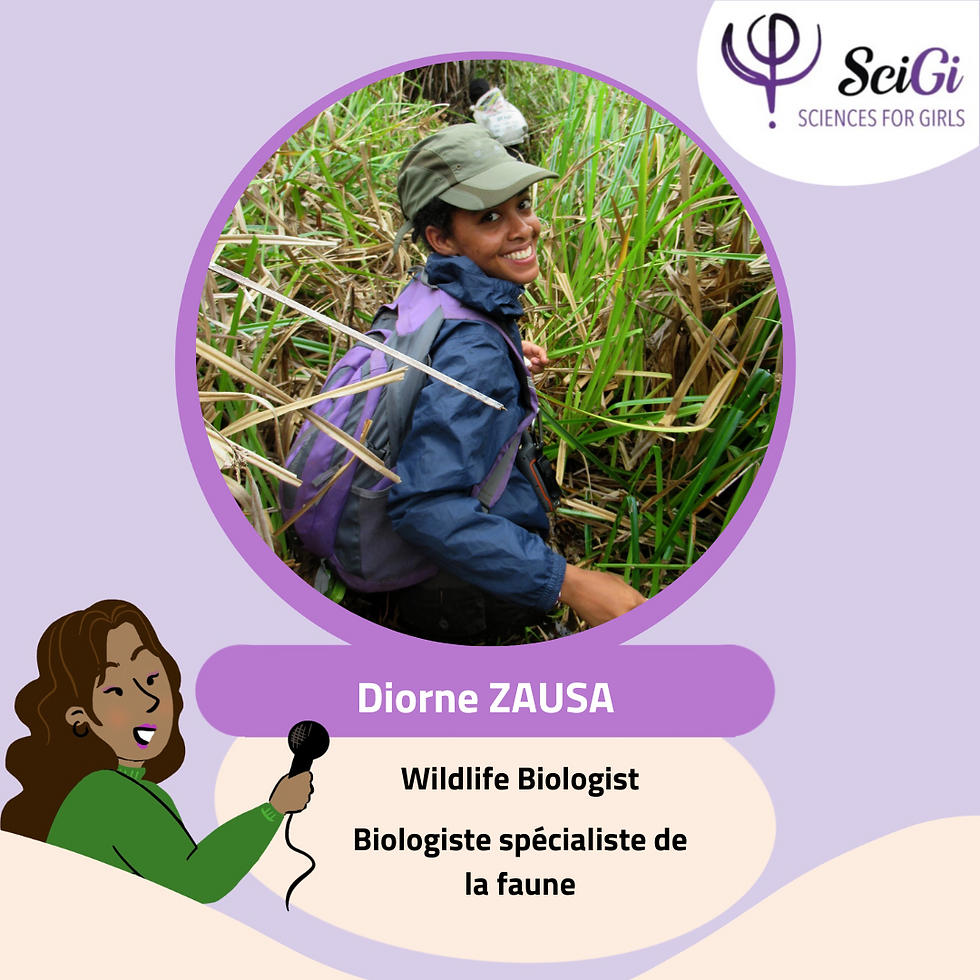
My name is Diorne Zausa, I live in Abidjan in Côte d'Ivoire (West Africa) and I am a zoologist, more specifically, I am currently a doctoral student in Conservation Biology and Wildlife Management at the University Félix Houphouët-Boigny in Abidjan, an associate researcher at the Swiss Centre for Scientific Research in Côte d'Ivoire (CSRS) in the Research Group Conservation and Valorization of Natural Resources and Secretary General of the non-governmental organization Action for the Conservation of Biodiversity in Côte d'Ivoire (ACB-Côte d'Ivoire).
My missions
My role as a zoologist is to carry out research into animal species and in particular mammals in their natural habitats. I carry out inventories and studies to see whether species are under threat locally and what pressures are being exerted on them. My role is also to highlight these pressures and propose sustainable solutions for maintaining natural habitats and thus preserving animal populations. Zoologists and all those working in the field of wildlife play an important role because they help us to better understand our environment, to better identify the species that surround us and the threats they face, and so they can raise awareness and take action to halt harmful trends and enable ecosystems, the ecosystem services they provide and biodiversity to be maintained.
Zoologists and all those working in the field of wildlife play an important role because they help us to better understand our environment
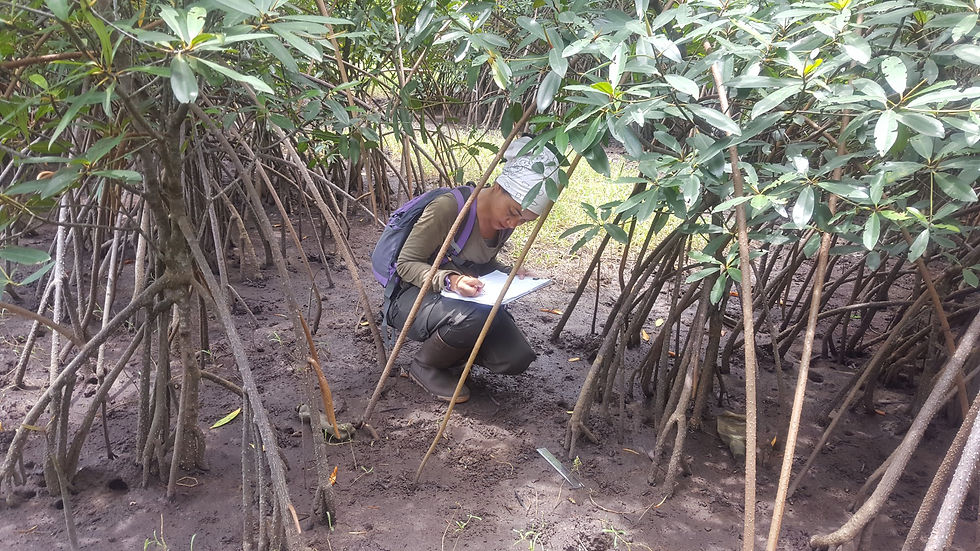
A day with me
There isn't really a typical day. It depends on the project we're working on. I work on research or action projects. First of all, you have to identify a problem in a given context and write a project around it, then submit it to calls for funding. Out of 10 submissions to calls for proposals, we may get funding to start the project. So there's an office part, where you have to do bibliographical research, writing, exchanges with colleagues, etc. When the funding is obtained, there's the administrative part. Once the funding has been obtained, there's the fieldwork part, which involves either collecting data for research projects or carrying out project activities in the field for action projects. This is my favorite part because it's when I can be out in nature and make direct or indirect observations of species. Then there's the office phase, where I analyze data, write reports, produce popularization documents, write scientific articles, prepare financial reports and so on. Finally, there is the feedback phase, with the possibility of going to the villages where the study was carried out to present the results to the people concerned, but also to institutions working in the sector, as well as oral presentations within the research center or at national and/or international conferences.

My background
Ever since I was 7 years old, I've known that I wanted to be a zoologist because I already thought that the world was a whole and that if animals disappeared, so would humans, and as I thought that there were already a lot of people looking after humans, I decided to look after animals who don't have the possibility of defending themselves against the destruction of nature caused by humans.
I began my university career in France at the University of Bordeaux with a degree in Biology of Organisms and Ecosystems and went on to do a Research Masters in Ecophysiology and Ethology at the University of Strasbourg's Faculty of Life Sciences. This course enabled me to acquire strong skills in terms of scientific rigor, as well as the knowledge needed to have a critical opinion and to be autonomous in order to take part in research projects in the field of animal biology.
I wanted to focus on African wildlife, so as soon as I graduated I decided to do some optional internships to start learning about mammals in Côte d'Ivoire. I did an internship at Abidjan National Zoo in 2013, where I worked in a number of areas, including ethology with primate feeding behavior, veterinary science with coroscopy to study the parasites that infect the zoo's animals, and the rehabilitation of enclosures with an English zoologist. I went on to do an optional placement during the school holidays at Bordeaux-Pessac Zoo in France between 2013 and 2014, where I did a comparative study of how zoos in different countries (France and Côte d'Ivoire) operate. These two placements enabled me to acquire skills in the management of wildlife in captivity and the management of an establishment containing wildlife.
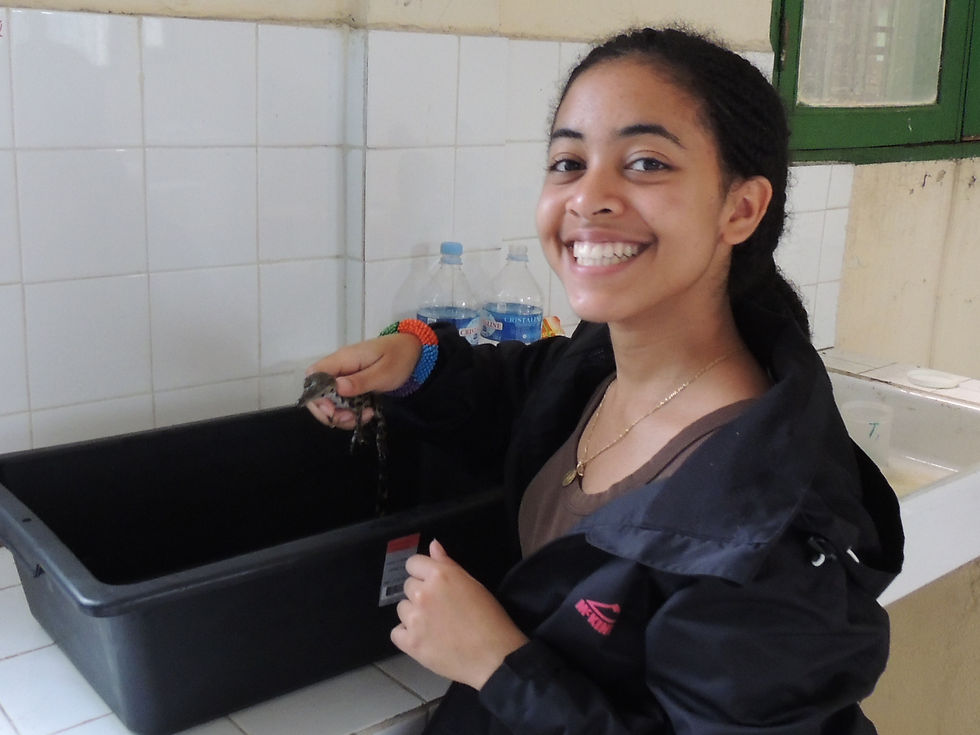
During my master's degree, I did a placement with a team at the IPHC-DEPE of the National Centre for Scientific Research (CNRS) in Strasbourg (France) on the influence of culture on the social crossing behavior of pedestrians: from Strasbourg to Nagoya (Japan). The study led to the publication of a scientific article in an international journal, the results of which were reported in a number of popular media. It was also the subject of a poster presentation at the SFECA Conference in 2015. In the same year, I joined the Swiss Centre for Scientific Research in Côte d'Ivoire (CSRS) to carry out another optional internship under the supervision of Prof. Inza Koné, within the Research and Action for the Safeguard of Primates in Côte d'Ivoire (RASAP-CI) program, the theme of which was 'Determining basic indicators for assessing the impact of community management of the Tanoé-Ehy Swamp Forest (FMTE)'. Thanks to this internship, I acquired skills in village surveys and how to integrate local people to ensure sustainable management of natural resources.

I then did my end-of-master's degree work placement in the Taï National Park as part of the CSRS Taï Monkey Project (TMP). The subject of this placement was foraging strategies in Campbell's monkeys, Cercopithecus campbelli, in the Taï National Park. Thanks to my conviction and determination to obtain rigorous results, I was able to overcome the strong pressure I was under in the forest and see this study through to the end. I obtained the data I needed to support and write my first scientific article, as first author. In particular, I was able to present the results of this study in an oral communication at the inaugural Congress of the African Primatological Society (SAP) held in Abidjan in July 2017. I was then awarded the prize for the best oral communication for this presentation.
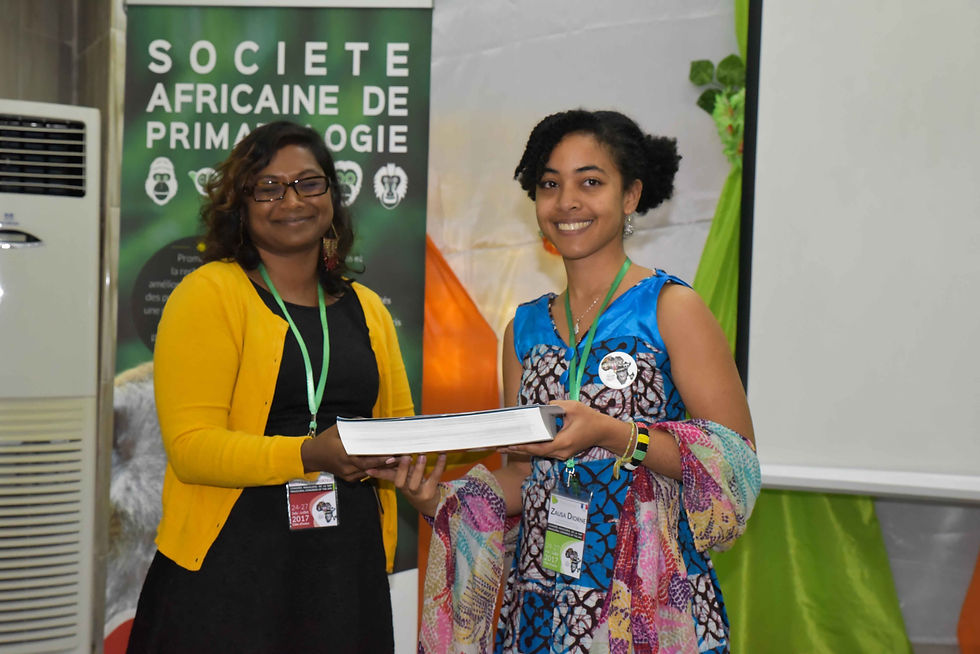
Wishing to pursue a PhD on a theme that focuses on neglected natural areas and the species still present, I wrote a project with my supervisor. The topic is as follows: "Distribution and conservation status of medium-sized and large mammals in residual forests in south-eastern Côte d'Ivoire". I submitted the project to more than fifteen funders in two years and I obtained my first funding from the Marcel Bleustein-Blanchet Foundation for Vocation, which is a grant given to young people under 30 who have had a vocation for a long time and who are pursuing it despite family and financial difficulties and who lack the support to fulfil their vocation. So I was awarded the Vocation Prize in 2018 with a class of around fifteen young people. I then received financial support from the CSRS over two years to buy equipment and carry out fieldwork. I continued to look for additional funding to carry out the methodology as a whole, and I obtained support from the Rufford Foundation with a Small Grant, which enabled me to complete my data collection and also to present some of the results in the villages around the study sites, which was greatly appreciated by the local population. What's more, I received a free two-year grant from PASRES following an application, to help me with my day-to-day expenses so that I could concentrate on my study. Despite donors' lack of interest in so-called common species and neglected natural areas, I didn't give up and redoubled my efforts to complete my thesis project. A scientific article was published in the international journal Mammalia on the initial results of my research.
In addition to my university studies, I have taken part in a number of activities and research projects, in particular with the RASAP-CI program, where I have been in charge of monitoring and evaluation since 2020. This has led me to carry out a number of field missions to local communities to ensure that projects are working properly and to identify areas for improvement. For example, I contributed to the classification of the "Forêt des Marais" Tanoé-Ehy (FMTE) as a Voluntary Nature Reserve. I've also taken part in many activities and events organized by the CSRS, and my wide range of skills has enabled me to translate educational documents and be part of the organizing team for the 2021 International Symposium on Transformational Research in Sub-Saharan Africa, to join the CSRS communications team as a representative of the Conservation and Valorization of Natural Resources (CVRN) research group and, since 2023, I have been appointed Coordinator of Scientific Events and am in charge of organizing the Student Meeting and the Journal Club every week.
I don't hesitate to take MOOCs to complement my skills and I've currently successfully completed a dozen or so. I was also selected in 2022 to be part of the first class of young academics trained in the processing, analysis and interpretation of wildlife monitoring data. This course, funded by the Volkswagen Foundation and Re:wild, brought together around twenty young Africans in Côte d'Ivoire in 2022 and Rwanda in 2023 to train them in the use of R software and in writing scientific articles. An article is being prepared in which I will be 3rd author among ten or so authors.
I have recently been selected as a mentee for the UNESCO Mentoring Program for African World Heritage Professionals. The UNESCO World Heritage Centre, in collaboration with the African World Heritage Fund (FPMA) and the three Advisory Bodies (ICOMOS, ICCROM and IUCN), created this mentoring program to give African heritage professionals the opportunity to become experts and to become more involved in implementing the activities of the World Heritage Convention.
What's more, thanks to my career path, in 2023 I won the national prize for the best young female scientist at the International Fortnight for Science and Technology (QIST) in Côte d'Ivoire.
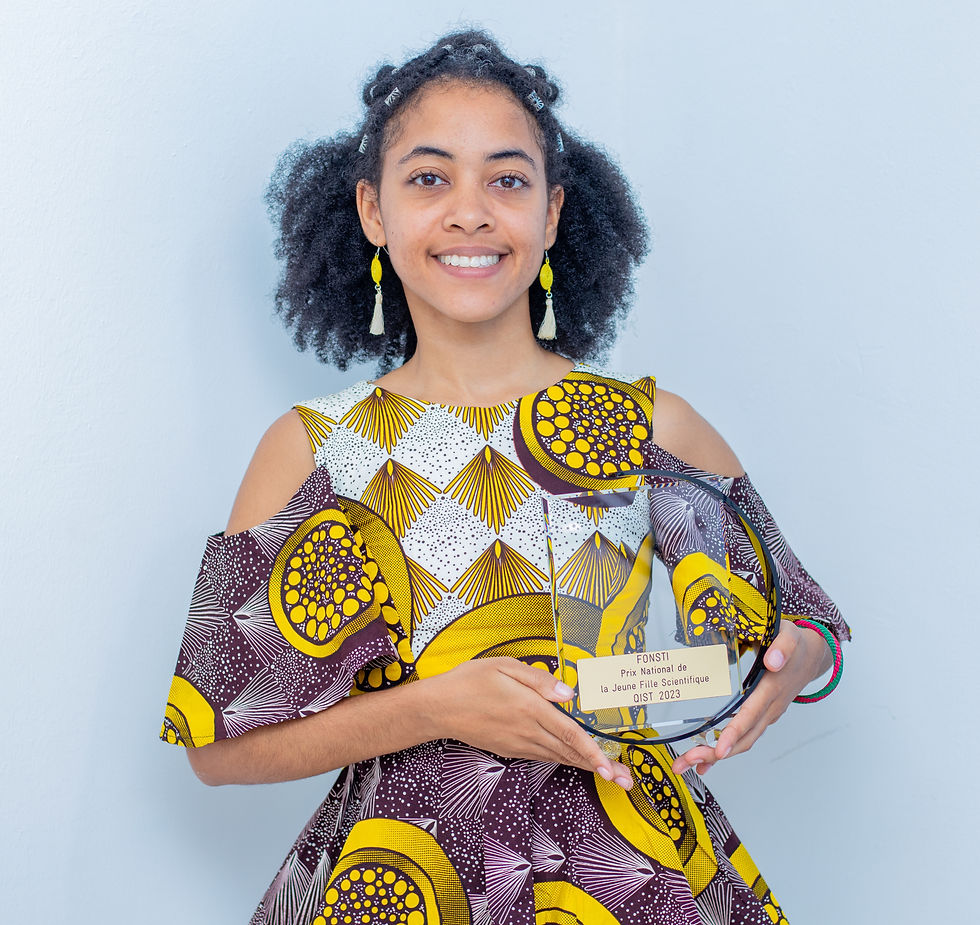
My experience as a women
In the 'world of zoology' or research in general, I have had to face up to certain problems concerning gender. There are very few women in my field in Côte d'Ivoire, and especially few women who actually go into the forest to collect data. I felt a bit alone and a bit lost because I didn't really know who to ask certain practical questions to as a woman. However, it was also an advantage for me because I was able to impress the assistants who came with me because they didn't think that a woman could do this kind of work with such determination. Ever since I was a little girl, I've been used to playing with boys and I've had quite a few male friends, so I don't mind being in a 'male' environment. Unfortunately, I was the victim of sexual harassment in the forest and it was the nature that surrounded me and my objective for the course that enabled me to go through with it and finish with honors. But it always leaves a mark and it's important to talk about this kind of thing and report it, even if it's quite difficult at the time. I'm proud to be a woman in science and I hope that my attitude also helps my colleagues to imagine that their daughters can also do science. Everyone should have the right to do the job they want, regardless of their gender. The notion of gender is increasingly taken into account in projects, but there is still a lot of work to be done.
What I am proud of
What I'm most proud of is having been able to carry out all these missions in tropical forests, often swamps, as team leader, despite my fear of spiders, and to have been able to impress forest rangers and colleagues with my perseverance and energy. I'm proud to have been able to carry out my doctoral project on neglected natural areas and obtain funding to carry out my research there in order to assess the situation and sound the alarm about the local disappearance of so-called common species. My aim is to make a significant contribution to nature conservation by focusing on neglected species and areas that are in danger of disappearing in the medium term.
Volunteering and dance
Dance and music (...) allow me to keep a certain elasticity in my brain (...) to have a team spirit and perseverance.
I'm a dynamic person and very dedicated in all the activities I'm involved in. I joined the non-governmental organization Action for the Conservation of Biodiversity in Côte d'Ivoire (ACB-Côte d'Ivoire) in 2017, in particular to help with communications, and I was appointed Secretary General in 2020 and reappointed in 2022. I play a very important role in this non-governmental organization and have helped to revitalize it, both in terms of communication and internal organization. In particular, I represented the non-governmental organization at a number of national workshops to validate the draft elephant conservation bill and the national strategy for the protection, recovery and promotion of wildlife. I have also been part of the Web Committee organized by IUCN-PAPACO since 2018 for the creation of a website for the Small Initiatives Program (PPI) projects of which the non-governmental organization has already been a beneficiary. My involvement and dynamism enabled me to stand out and the PPI invited me to represent the non-governmental organization at the IUCN World Conservation Congress in 2021 and to sit on the project selection committee for their latest PPI 6 funding call. I was able to make a name for myself at the IUCN World Congress and this enabled me to establish a collaboration with a documentary film crew who wanted to make a documentary in Côte d'Ivoire and one of my study sites was added to their script on my recommendation. I welcomed the team and enabled them to observe several animal species, including bats and green monkeys, in the Îles Ehotilé National Park in less than 48 hours. The documentary "WildLive Expedition Côte d'Ivoire" was broadcast on Ushuaïa TV in 2022 and on TF1 in 2023.
I'm also a founding member of the African Primatological Society and help the organization with communications.
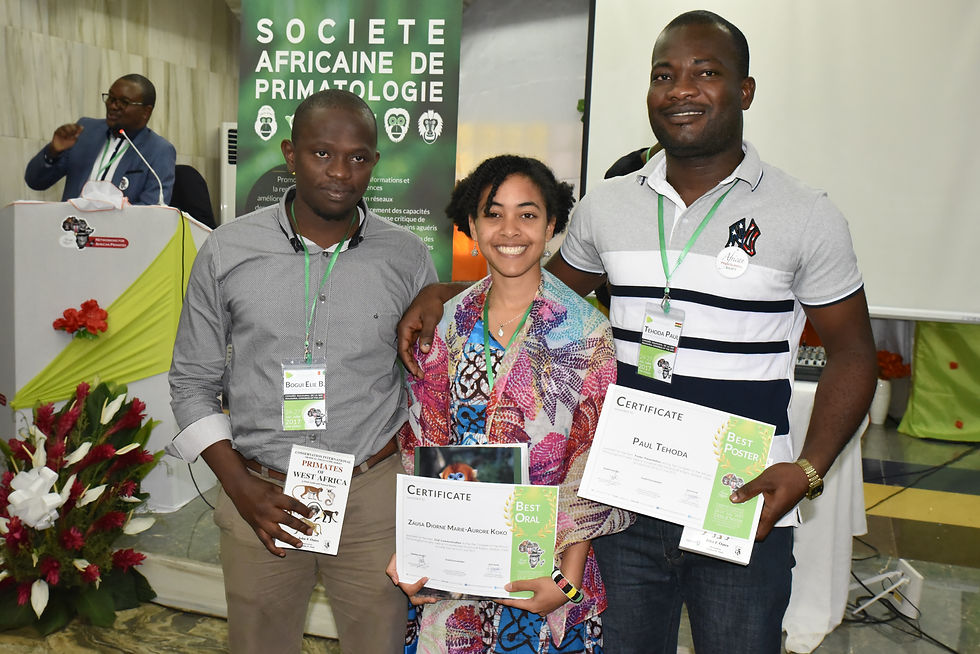
I have been a volunteer with the non-governmental organization ACB-Côte d'Ivoire since 2017 and I became the General Secretary of this organization in 2020. I have helped to revitalize this non-governmental organization, which is made up mainly of researchers and students in the natural sciences. I represent it at a number of national workshops and international conferences, and I take part in drafting projects and carrying out activities to preserve nature in Côte d'Ivoire.
Moreover, I'm a dancer, and since I've been in Côte d'Ivoire, I've joined the Salsa Fun Club school, where you learn to dance as a couple, in particular salsa, bachata and kizomba. I joined their dance company and I perform at various events and we make several group videos during the year. I'm currently training with them to become a coach and help them share our love of dance with new students.
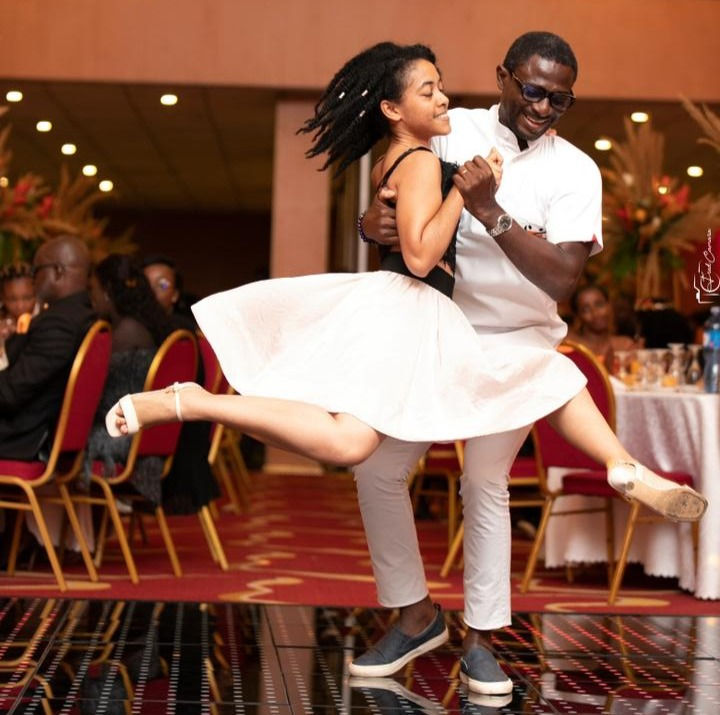
Dance and music, which I've been practicing since childhood, help me to keep my brain flexible, to be tolerant and to have a team spirit and perseverance. I've learnt that nothing can be taken for granted right from the start and that if you persevere, you'll always achieve something. It also taught me about sharing and I think that has kept me happy throughout my life, despite family and financial difficulties.
Work-life balance
It's difficult to find a balance between work and the rest of our lives. We don't really have working hours and we have to set ourselves barriers so that we're not 100% at work. Doing activities outside work already helps to shift the balance. I try to have at least one day when I don't touch my work and take the time to do activities or have fun. It's important to take the time to maintain your social life and rest so that you can catch your breath and continue to be effective at work.
It's important to take the time to nurture your social life and rest so you can catch your breath and continue to be effective at work.
Other activities such as dance and music have always helped me to progress in my studies and my work. When I went through a period of several years when I couldn't play or dance when I arrived in Côte d'Ivoire, I went through a depressive phase, which meant I couldn't work as I used to. It was by deciding to join a dance club that I was able to rediscover myself and resume my activities at work with greater ease.
Somes pieces of advice
Don't be afraid to follow your sixth sense.
I don't regret my choices and I think that even if I've had some unpleasant or painful experiences, they've nevertheless enabled me to get where I am and to meet the people I know. You can always do better, but you can't know how things would be if I'd made a different choice. So I would advise young girls to believe in what they're passionate about, to question the world around them and see what they can contribute in their own way. It's good to set goals, but you also have to take into account your physical and moral environment and adapt accordingly. As you go along, you discover new paths and areas of activity that may suit you better and change your basic objective a little. Don't be afraid to follow your sixth sense.
Believe in yourself and do what you enjoy. Find what you're passionate about, and you'll see that you'll find a new energy within you that will enable you to achieve your goals.
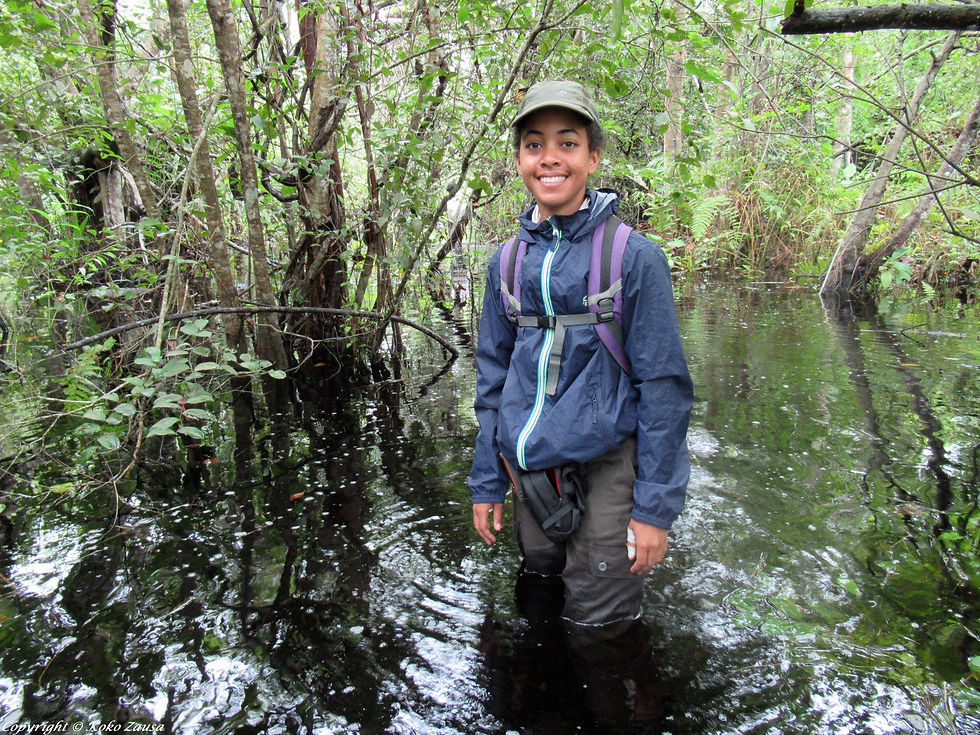
Edited by Manon P. and Mazzarine D.
Find her here:
Instagram : https://www.instagram.com/diornezausa/
LinkedIn : https://www.linkedin.com/in/diorne-zausa/
Diorne ZAUSA: wild diversity and its conservation challenges






Comments